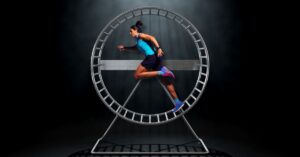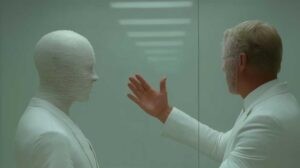
In the book How to Make Yourself Miserable by Dan Greenburg, the author talks state that comparison is the fastest way to become unhappy.
To this degree, I propose an exercise:
Think about your life, about how much money you have, your relationship, possessions, and so on. Can you have a better life in all these domains?
Now, can you think of a person who has these particular aspects of life better?
Certainly, one person can be wealthier, beautiful, or successful than you. One person never had to work for it in his life. He just inherited everything and is born with all the right qualities. We cannot be great at all these things, and we will be lucky to be the best in one or two fields in our lives. Indeed the grass is always greener on the other side.
Let’s take, for example, Gandhi. Gandhi is known for promoting world peace, but he is also known for his biography’s controversial behavior; for one, Gandhi would continuously change his mind, and uncertainty that should not exist in people there to guide people. For yearly years Gandhi’s philosophy was pro-life, yet when the war broke down, Gandhi was promoting recruitment to the army. This was indeed one of the most criticized moments of Gandhi’s life, showing that while we all want to be as benevolent as Gandhi, we probably don’t want to copy Gandhi in all aspects of his life. Nobody is perfect, and we cannot be expected to be great at everything. Yet our human nature wants to be excellent in everything. The solution is that we need to specialize.
People usually have one or two things that they are going to be good at. These are the thing people should pursue. But most people don’t even know what they are good at. They have to spend a lot of their time pursuing everything and never had time to reflect on what they are good at. Finding out what we are good at can be tricky business, but it can also be very obvious. People who are good at something get complimented on the things they are good at, so what are you getting approved on? This can be your area of specialization. If this approach is not apparent, the next logical thing is to start trying things out until the quality shows up.
Still, we need to specialize in the right things. I constantly see people who buy expensive creams, new cloth, and do other items in the name of beauty. Still, the truth is that changing external appearance to match media promoted perfection can be a futile task. People either have it, and some people don’t. Small changes cannot make a tremendous difference, so why should we spend countless hours on it? Making something we are bad or average into a strength can be a very costly exercise and often can never be as good as finding what our strength is already and making them even more remarkable.
Overall, we should not compare ourselves to everyone else in an age of millions of choices and decisions. It is futile and highly demotivating. People who compare themselves to others can quickly become highly unhappy and even depressed. But there is a silver lining, a way in which we can benefit from the comparison.
How the majority of people compare is from the place of scarcity, which is the wrong way to reach. Scarcity means not having what other people have and consequently either wanting to have what others have or more. This is where people either do nothing and get unhappy or do something about it and enter into a competitive comparison, which is often seen between people who acquire for having more than others (e.g., better lawn, better car). This is why some millionaires can never stop working for money because someone else has more money than they do.
A correct way to compare is by seeing other people as an idol. We see other people who made it in a positive light, and we say to ourselves, “I want to be like him” and pursue this goal. Only when we can remove our ego from the equation when we stop comparing ourselves to others from the place of scarcity can we be happy.















